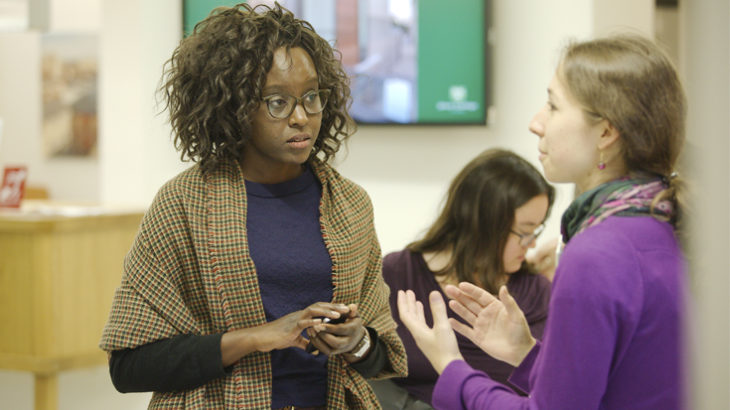Guest Post: Global Data from A Public Health Perspective

Arnaud Koehl is a PhD researcher based at the School of Public Health at Imperial College London. He is interested in finding comprehensive and sustainable pathways for open systems such as transport matrices, energy markets, cities and material flow. His research is about the health and economic co-benefits of interventions to reduce transport related GHG emissions in populous middle income countries.
I represent the typical early career researcher focussing on several outer world issues from his London-based office. Even though I’m using modelling as a primary method, I always feel the need to get a more accurate vision of what I am doing by travelling and relating to other people. I came to Jesus College in Oxford for the specific perspective of discussing more accurate forms of finding and using data.
The one-day conference definitely met my expectations. I particularly enjoyed Dr. Troy Sternberg’s presentation on getting different types of data from a binational region such as the Gobi Desert. It made me understand that analysing human activities in a geographic perspective could help to reveal simple facts that could be central in shaping key research questions. I feel that we dismiss visual observation too often in the academic world, and that my work on China’s transportation system, and especially the type of data I should be seeking, could gain from this.
“I was also surprised to get an insight on how to handle my data, especially regarding ethics”
I was also surprised to get an insight on how to handle my data, especially regarding ethics. Of course, the excellent presentation from Prof. Mary Bosworth (also rich in visual descriptions) focussed on a very sensitive topic, conducting research in detention centres. Planning in advance of completing fieldwork for potential difficulties and simple preparation, such as the type of clothes you’re wearing, could definitely be applied in public health, one of my research field.I would really like to discuss further pragmatic ways of accessing and processing data from other countries, such as China. Often, we know that the data is there, but there is just not enough connection or personal ability to extract it, and finding our own solutions can be very resource-consuming, something that Dr. Simon Hodson and Dr. Heather Hamill highly emphasized!
Open-access, a practice that my supervisor is very keen on when publishing the supplementary data used for his transport models, is something more and more important with the global trend of research in economic and environmental sciences. Even though open-access, or “smart disclosure” is increasingly used, there are still strong political, strategic or administrative barriers hindering a wider use of data for research purposes, and I would recommend more collective thinking and advocacy in that matter.Now writing from the 22nd United Nations Conference on Climate Change in Morocco, also known as COP22, I understand the absolute priority of developing and sharing data internationally. The UNFCCC, the official United Nations body in charge of setting up the negotiations, is a good example of displaying all research and negotiations documents possible on its platform. COP22 is also an amazing platform where diplomats, academics and NGOs interact in the same physical ground to shape science-based and democratic international agreements. Beyond networking, I feel that many participants genuinely wish to share sources and build up more coherence, especially on regional climate modelling.

